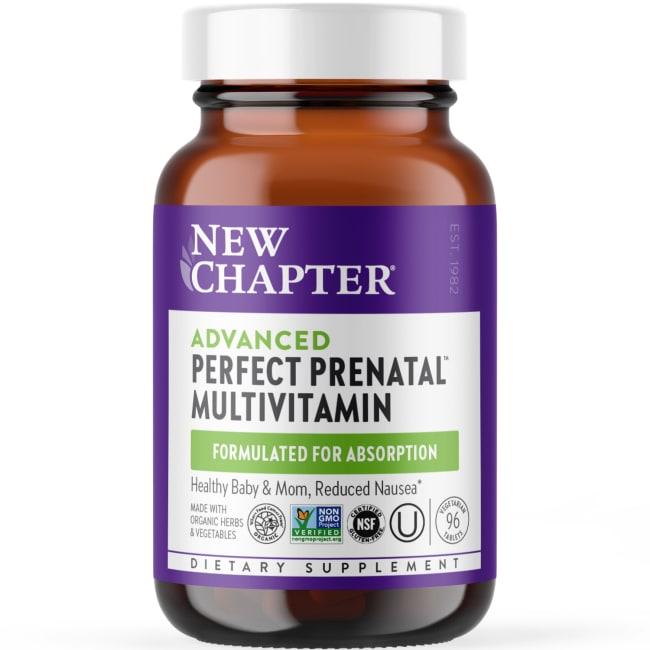In the bustling aisles of supermarkets and the sleek pages of health magazines, multivitamins often sparkle with promises of enhanced vitality and well-being. They sit in their colorful bottles, offering a convenient solution to the complex puzzle of nutrition. But as we delve deeper into the world of wellness, a question emerges from the kaleidoscope of capsules and tablets: are multivitamins truly necessary, or are they simply modern-day elixirs of hope? In this exploration, we aim to peel back the layers of this ubiquitous supplement, examining both the scientific evidence and the subtle whispers of personal anecdotes, to uncover whether multivitamins are a vital component of our health regimen or an optional embellishment in the tapestry of modern life. Join us as we navigate the crossroads of necessity and choice in the realm of multivitamin use.
Understanding the Role of Multivitamins in Modern Diets
In today’s fast-paced world, where convenience often trumps nutritional value, the inclusion of multivitamins in daily routines has become a topic of interest and debate. As people juggle busy schedules, the quest for a balanced diet sometimes takes a back seat, leading to potential nutritional gaps. Here, multivitamins step in as a possible solution. They are designed to supplement the diet by providing a range of essential nutrients that might be lacking in everyday meals. While they are not a substitute for a varied and balanced diet, they can be a practical choice for individuals who struggle to meet their nutritional needs through food alone.
- Convenience: Multivitamins offer a simple way to ensure the intake of essential vitamins and minerals.
- Supplementing Deficiencies: They can help address specific nutrient gaps in the diet, particularly for those with dietary restrictions.
- Insurance Policy: Some view them as a safety net, providing peace of mind that they are covering their nutritional bases.
However, it’s crucial to remember that the effectiveness and necessity of multivitamins can vary from person to person. Factors such as age, health status, dietary habits, and specific nutritional needs should be considered when deciding if multivitamins are the right choice. Consulting with healthcare professionals can provide personalized advice, ensuring that one’s nutritional strategy aligns with their individual health goals.

Evaluating the Evidence: Do Multivitamins Really Work?
In the pursuit of better health, many people turn to multivitamins as a seemingly simple solution to fill nutritional gaps. However, the effectiveness of these supplements remains a topic of debate. Scientific research provides mixed results: some studies suggest that multivitamins offer benefits, while others find little to no significant impact on overall health. This inconsistency raises questions about their true value and necessity.
To make an informed decision, consider the following aspects when evaluating multivitamins:
- Dietary Habits: Individuals with balanced diets rich in fruits, vegetables, and whole grains might not need additional supplements, as their nutritional needs are largely met through food.
- Specific Health Conditions: Certain health conditions or life stages, such as pregnancy or chronic illness, may require additional vitamins or minerals that a multivitamin can provide.
- Personal Health Goals: For some, multivitamins serve as a safety net to ensure nutrient intake, especially when dietary restrictions limit certain food groups.
Ultimately, the decision to incorporate multivitamins should be personalized, weighing the potential benefits against individual health needs and dietary intake.

Choosing the Right Multivitamin for Your Health Needs
When it comes to selecting the perfect multivitamin, it’s essential to tailor your choice to your unique health requirements. Each person’s nutritional needs vary based on factors such as age, gender, lifestyle, and dietary habits. Consider the following when making your decision:
- Age and Gender: Nutrient needs change over time. For instance, women of childbearing age may need more iron, while older adults might require additional calcium and vitamin D.
- Dietary Preferences: Vegetarians and vegans may need to focus on vitamins B12 and D, as well as iron and omega-3 fatty acids, which are less abundant in plant-based diets.
- Lifestyle Factors: Active individuals or those under high stress may benefit from extra antioxidants and B vitamins to support energy and recovery.
Understanding these personal factors can guide you in choosing a multivitamin that complements your lifestyle and health goals, ensuring you fill any nutritional gaps effectively.

Expert Recommendations: Who Should Consider Taking Multivitamins
When considering the addition of multivitamins to your daily routine, it’s essential to recognize specific groups who may benefit the most from these supplements. While a balanced diet remains the best source of essential nutrients, there are circumstances where multivitamins can fill nutritional gaps. Here are some groups that might consider incorporating them:
- Pregnant Women: During pregnancy, the body’s nutritional needs increase significantly. Multivitamins, especially those with folic acid and iron, can support the health of both the mother and the developing baby.
- Older Adults: As we age, our ability to absorb nutrients efficiently may decline. Multivitamins can help compensate for these changes, particularly for vitamins B12 and D.
- Individuals with Dietary Restrictions: Those following vegan, vegetarian, or other restrictive diets might miss out on certain nutrients found predominantly in animal products, such as vitamin B12, iron, and calcium.
- People with Certain Health Conditions: Some medical conditions or medications can lead to nutrient deficiencies. In such cases, multivitamins might be recommended by healthcare providers to ensure adequate intake.
While these recommendations provide a general guideline, it’s crucial to consult with a healthcare professional to determine personal nutritional needs before starting any supplement regimen.
To Wrap It Up
As we close the chapter on our exploration of multivitamins and their place in our daily lives, it becomes clear that the answer is not a simple yes or no. The colorful array of pills and capsules that line the shelves offer promises of health and vitality, yet their necessity remains as varied as the people who consider them. the choice to incorporate multivitamins into one’s routine is a deeply personal decision, influenced by individual health needs, dietary habits, and lifestyle choices. Whether you find yourself reaching for that bottle or opting for a plate rich in natural nutrients, the journey towards well-being is uniquely yours to navigate. As science continues to evolve, so too will our understanding of these supplements, guiding us with a compass of knowledge and insight. Until then, may your path to health be as vibrant and balanced as the spectrum of nutrients you seek.


































